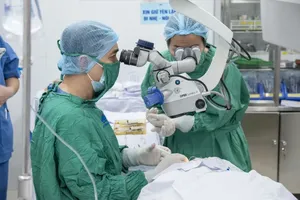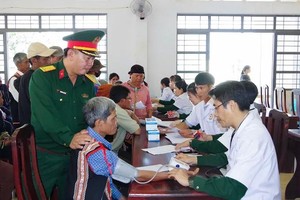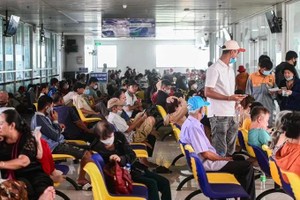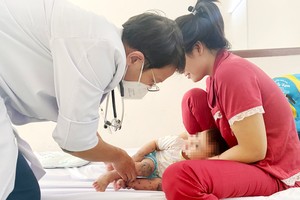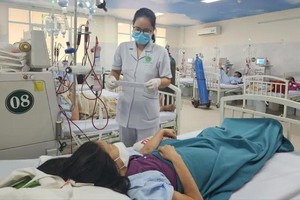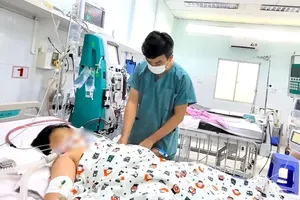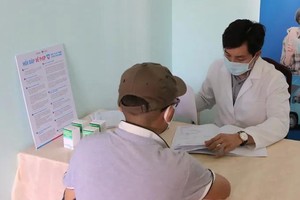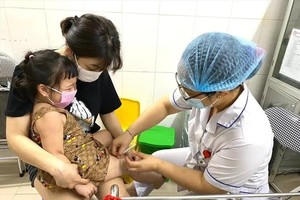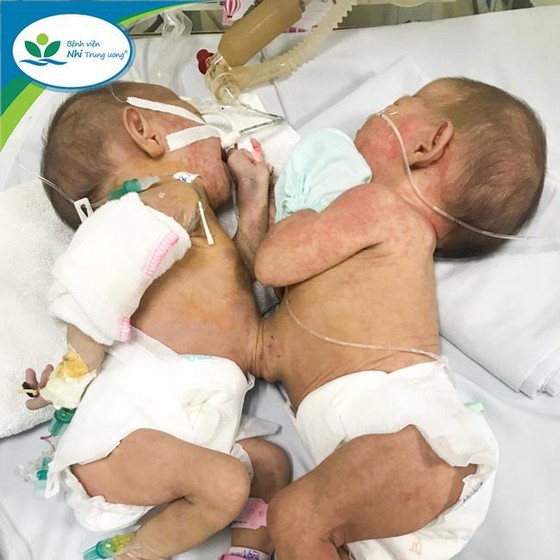 Rare conjoined twins with cardiac abnormalities share a liver
Rare conjoined twins with cardiac abnormalities share a liver
According to hospital doctors, baby V.N. and V.T. hailing from the Northern Province of Lao Cai were found to be conjoined twins when the mother was 33 weeks pregnant. About 7 weeks later, the two babies were electively cesarean section, and the birth weight of both babies was 2.2kg and 2.8kg respectively.
After birth, baby V.T. has subcutaneous hemorrhage and pustules all over the body but stable health meanwhile, baby V.N. has respiratory failure requiring oxygen, systemic pustules, and echocardiography detected the atrioventricular septal defect. Through abdominal ultrasound, doctors found the two kids share the liver.
After being transferred from the General Hospital in Lao Cai Province to the National Children's Hospital, Hanoi doctors concluded that V.N. is suffering from complete atrioventricular septal defect, one atrium heart, severe atrioventricular regurgitation, aortic disruption, arterial inversion, pulmonary atrophy. The baby is in critical condition.
The other baby is in more stable health. Soon, surgeons of the National Children's Hospital had a consultation meeting with medical specialists for early surgery, trying their best to save both babies' lives.
However, through the evaluation of the hospital, the operation for the conjoined twins has many difficulties because the liver part of the two children conjoined and half of the lower body of baby V.N. is nourished by the hepatic artery of V.T.; therefore, risks of shock and death are highly likely to occur during the abdominal and liver separation.
Moreover, children have many cardiovascular abnormalities. However, without early separation surgery, baby V.T.'s heart failure can occur due to the need for blood transfusion to feed both bodies. Currently, the twins are being treated with the cooperation between the Neonatal Center and the Department of Internal Medicine.
Conjoined twins are very rare. Doctors estimate that only 1 in 200,000 live births result in conjoined twins. More than half of conjoined twin pregnancies result in miscarriage or stillbirth. Approximately 70 percent of conjoined twins are female. Approximately 75 percent of conjoined twins are joined at least partially in the chest and share organs with one another.



